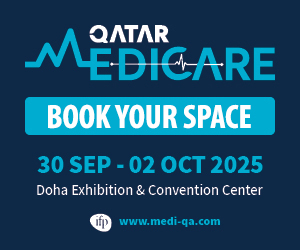Qatar’s healthcare sector is poised for significant expansion, driven by investments in infrastructure, advanced medical technologies, and the growing medical tourism market. In the 2025 national budget, $6.04 billion has been allocated to healthcare, representing 10.5% of total expenditures.
According to Statista, Qatar’s hospital market is projected to generate $2.26 billion in revenue by 2025, reflecting the country’s focus on providing world-class healthcare services. By 2029, the market volume is expected to rise to $2.85 billion, with an annual growth rate of 5.94%.
The sector’s growth is attributed to the expansion of healthcare infrastructure, including new hospitals and medical facilities. Qatar’s efforts to boost medical tourism are drawing patients from abroad, increasing demand for high-quality treatments and specialized care. Advanced technologies, such as artificial intelligence and precision medicine, are also being adopted to enhance diagnostic accuracy and personalize treatment plans, solidifying Qatar’s position as a regional healthcare hub.
Statista forecasts that by 2025, Qatar will have 1.16 hospital beds per 1,000 inhabitants and a nurse-to-population ratio of 7.5 nurses per 1,000 inhabitants, further supporting its healthcare objectives.
The medical device market in Qatar is also growing rapidly, with expected revenues reaching $744.90 million by 2025. Cardiology devices are projected to dominate the market, accounting for $121.60 million in revenue. This growth is fueled by the rising demand for innovative medical devices that enhance diagnostic precision, portability, and efficiency.
Digital health technologies are gaining traction as Qatar integrates solutions like wearable health monitors, telemedicine platforms, and remote patient monitoring systems. These innovations are transforming healthcare delivery, especially in remote areas with limited access to services. The government is actively supporting these advancements as part of its strategy to improve healthcare outcomes and reduce costs.
Preventive healthcare is also a key focus, with initiatives targeting non-communicable diseases such as diabetes and cardiovascular conditions. By 2025, approximately 19.44% of Qatar’s population is projected to have diabetes, highlighting the need for early detection and continuous monitoring. The demand for medical devices like glucose monitors and blood pressure cuffs is surging as health awareness increases among the population.
Qatar’s comprehensive approach to healthcare development underscores its commitment to fostering a robust, technologically advanced healthcare ecosystem that meets the needs of its citizens and positions the country as a leader in the region.










































































